Ryan La Sala resides in New York City, but only physically. Escapist to the core, he spends most of his time in the astral planes and only takes up corporeal form for special occasions, like brunch and to watch anime (which is banned on the astral planes).
Ryan is the author behind the bestselling cottagecore horror, The Honeys, the riotously imaginative Reverie, and the brilliantly constructed Be Dazzled. He has been featured in Entertainment Weekly, NPR, Tor.com, and one-time Shangela from RuPaul’s Drag Race called him cute. Right in the middle of the road downtown! So. Pretty big deal all around, yes?
I had the opportunity to interview Ryan, which you can read below.
First of all, welcome to Geeks OUT! Could you tell us a little about yourself?
Thanks for having me! I’m Ryan, and I’m best known for writing queer books and wearing short shorts. Thus far, my career as a writer has been all about centering queer characters in stories only they can tell. I’m crafting a new mythology around queerness, one that finds depth, power, and complexity in queer identities. This mission has gotten my books put on many ban lists in the past year, but I’m unfettered. More often than the bans, I see my books showing up on lists created by allies and queer readers and bookclubs to promote books that tell the truth about LGBTQIA+ people, namely that we exist and have our own adventures.
How would you describe your upcoming book, The Honeys? Where did the inspiration for the story come from?
Everyone wants to be a Honey. They’re the popular girls at the Aspen Summer Academy, and they wield an enchanting power over adults and campers alike. All except Mars Matthias, a geeky, rebellious teen who shows up at the Summer Academy for one reason: to prove the connection between the Honeys and his sister’s recent, horrific death after her brief time as one of them. Mars is genderfluid and therefore exists beyond the traditions of summer camps, specifically their binary structures (Boys and Girls cabins, Battle of the Sexes, etc). But, because of this, Mars is able to slip through the dark in between, closer and closer to the bright, terrifying truth that shines at the center of the Aspen Summer Academy.
The Honeys takes inspiration from the genre of dark academia, but rendered in the bright, lovely pastels of cottagecore, because for queer people it is not just the darkness we must fear, but the monsters that are allowed to hunt us in broad daylight. Inspiration from the natural world also shaped this book, such as the minute ritual of bees. Studying bees, I learned a lot about humanity and found a lens through which to process grief, horror, and revenge.
How did you get into writing, and what drew you to young adult fiction and speculative fiction specifically?
To be completely candid, I started writing out of spite. As a queer teen, I was perplexed that popular YA novels like Twilight, The Hunger Games, and Harry Potter were devoid of queer people. All the best imaginations of our time, and they couldn’t imagine someone like me? Noting this clear flaw, and driven by spite, I started writing my own stories, and I filled them with queerness. Not just with characters who happened to be gay, but with plots, adventures, and victories that are inherently queer.
That story became my first book, REVERIE, about a queer kid battling a drag queen sorceress for the fate of reality. It’s a dreamy, ambitious book, but beneath the glitz is a serious question: why would you fight to save a reality that marginalizes you? Why not destroy it, and try again? This is the conversation between Kane, a young gay kid discovering his terrifying power, and Poesy, a drag queen who has had to stifle her power too long. Could a straight kid have this adventure? Probably not. Bless the straight kids, really, but they don’t have the range I need to tell the stories I needed as a kid.
I still feel the spite of my youth, but I’ve realized something. Spite is just undressed justice. Justice without her corset on, if you will. My stories might be fantastical, but the impact on our reality is real. My books have been celebrated and banned. I’m doing what I set out to do. I’m using queer magic to revise reality into something that doesn’t just tolerate queer kids but embraces them.
How would you describe your writing process? Would you say it’s changed since you first started as a writer versus now?
You know when you are crossing a busy street in the city, at night, with vehicles parked along it, and before you can even see an oncoming car you first see its reflection sliding towards you? Or the shadows flee from approaching headlights? Or the things seem to glow until suddenly the car bursts from the periphery into your reality? That’s what my process feels like. I know something is coming, and I catch glimpses of it reflected in the world around me, and then suddenly it’s honking at me, and I’m writing as quickly as I can, and before I know it I’m on the other side of the street. The book is written.
I don’t like this process. It’s inconvenient to be arrested like this for however long it takes. And I find it never takes long enough. Reverie took about ten years to actually get published. My second book took a summer to write. The Honeys took a month. My most recent book took 25 days. The car, to extend my earlier metaphor, keeps cutting it closer and closer, so I’m trying to get better at looking around the corners of my mind in anticipation of what’ll try to run me over next.
What would you say are some of your favorite craft elements to work on? Were there any stories or authors that inspired you as a writer coming into your own?
I adore contrast. The Honeys, for example, exists in the tradition of the Dark Academia novel–it takes place at an institution for the elite, which appears to harbor sinister secrets for the initiated few–but the book is neither dark nor academic. It’s bright and summery, and it’s actually set at a summer camp. The horror is still there, but the reader is forced to face these horrors without any darkness to hide within. That’s on purpose.
Sailor Moon taught me this contrast. Sailor Moon’s beauty and femininity never costs her power; it’s often the source of it. It never saves her from devastation, either. That’s true for a lot of media made for girls, that the gays declare iconic, and it’s had a profound effect on my approach to horror and fantasy. In my books, I love to use lush, lovely writing to explore serious, scary topics. It’s the brightest colors in nature that are often poisonous, after all.
Since Geeks OUT is a queer pop culture website, how would you describe your own queer and geeky interests? What draws you to fandom and what are some of your favorite fandoms?
I’m a total weeb. I grew up hoarding manga and anime. I loved Sailor Moon, Cardcaptor Sakura, and anything that was magical, dark, and flamboyant. I’m a gamer, too. I love the high-concept JRPGs of late, along with classics like Kingdom Hearts and Zelda.
That said, I kept fandoms at a distance until just recently. Growing up, ‘fandom’ was synonymous with pompous white guys who wanted to quiz me on Star Wars trivia and The Foundation trilogy. Barf. I’m so glad it’s so much more welcoming and diverse now!
My way back into fandom was actually cosplay. Cosplayers are my favorite people in any fandom. They’re the ones who are literally doing the work to participate in the stories we adore, and I love how open-source the community is when it comes to crafting these incredible costumes. My second book, BE DAZZLED, is all about cosplay culture. After writing it, I started to compete in cosplay competitions myself, and actually won Best in Show with a design from the book! I was dressed as HIM from Powerpuff Girls. An iconic sissy villain.
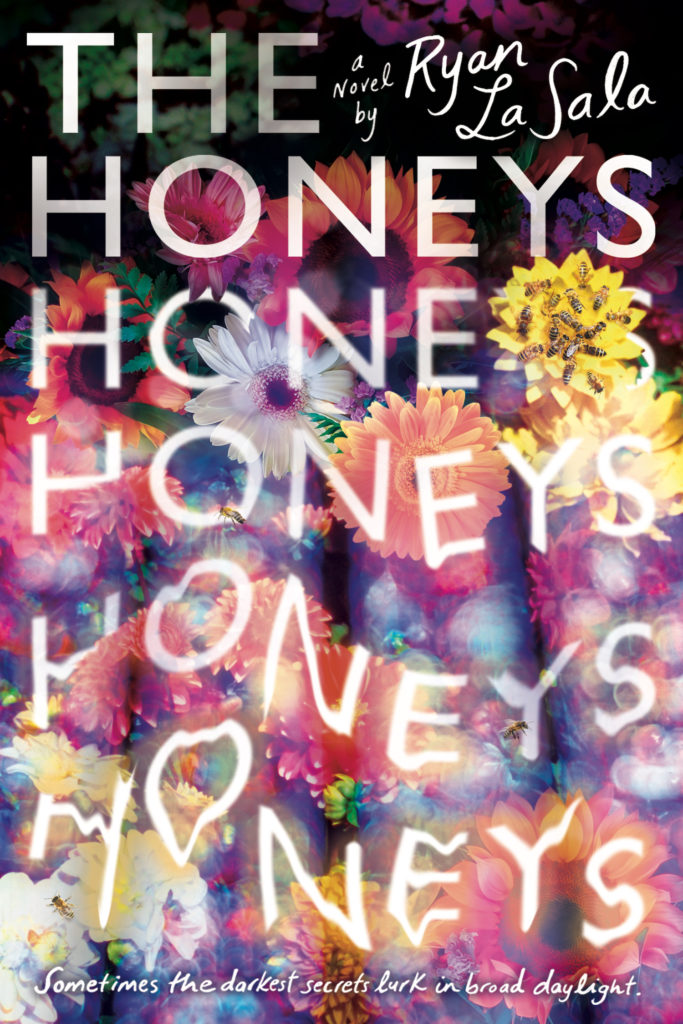
Besides being a writer, what are some things you would like others to know about you?
Writing is just an extension of my lifelong obsession with creating stuff. I love to craft costumes and cosplays, I love making gifts for people, and half the stuff in my very cluttered apartment is covered in hot glue, paint, or rhinestones. You know Howl’s bedroom in Howl’s Moving Castle? aspire to that level of elaborate, eccentric theatricality.
Speaking of theatricality! I come from a musical theater background, and still love to put on shows. I want people to know that I don’t just exist in the backflap of my books. I spend an inordinate amount of time creating content for Twitter, TikTok, Youtube, and live writer events because I love to put on a show and entertain. I hope people search for me after finishing my books!
What’s a question you haven’t been asked yet but wish you were asked (as well as the answer to that question)?
Question: Why honey?
Answer: Because it’s fascinating stuff. The closest thing to actual ambrosia I can think of. Did you know that a teaspoon of honey represents the life’s work of 12 bees? And a jar of honey is created by bees visiting millions of flowers in flights that, if added up, could circumvent the earth? When you taste honey, you’re tasting the concentrated essence of an entire ecosystem, and that to me is a paradox ripe for writing about. You have these tiny, cute insects working to create this miraculous substance that never, ever goes bad, and the act of creating it is what allows all these cycles of life, death, and regeneration.
In short, I think the bee has a lot to teach us humans, who often operate as adamantly individualistic, often until it destroys us. That describes Mars at the start of the book. I wanted him to face something greater than him, something that would force him to connect with the world after the isolating loss of his sister. That something is The Honeys.
What advice might you have to give to other aspiring writers?
If you’re going to say yes to making your dreams a reality, you’re going to have to say no to reality. Reality is not designed to let you write books. Books aren’t obligatory, like jobs or chores or karaoke. For most of us, no one asked. It’s a selfish, intriguing impulse that often gets us started with writing, and it’s usually at odds with a reality that would rather us leave it undisturbed with our dreaming. But I’m telling you to say no to that sense of complacency, and to dream, and to disturb the status quo with your made-up worlds.
What I also mean is: if you’re going to say yes to writing, you’re going to have to say no to something else. The harsh truth is that writing costs time. A lot of it. And no one is going to make that time but you. So, as quickly as you can, learn to say no. Get used to the discomfort of missing out. It sounds grim but it isn’t. It takes bravery to believe in yourself enough to make space and time for your dreams.
Are there other projects you are working on and at liberty to discuss?
I recently wrote a book in 24 days and recorded a diary on TikTok that I may or may not need to take down, because I think it’ll be the next book I publish. Here’s what I can share about it: it’s supernatural, it’s horrific, and it takes place in the most beautiful, private homes of New York City. While it’s not a sequel to The Honeys, it feels like a sibling to Mars’s story. It’s darker and hungrier, and the monster within is the kind I know people will have a hard time unseeing if they manage to see it at all before it gets them.
Finally, what LGBTQ+ books/authors would you recommend to the readers of Geeks OUT?
Increasingly, I’m talking about the LGBTQ+ books and authors I adore via Twitter and TikTok, so I recommend people follow me if they’re curious! Right now I’m reading and loving THE 99 BOYFRIENDS OF MICAH SUMMERS by Adam Sass. I am also eagerly awaiting books by Aiden Thomas and Julian Winters. My favorite recent read is PET by Aweake Emezi, and I just acquired the prequel, BITTER.

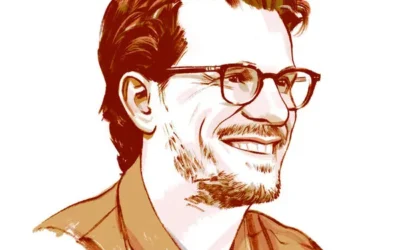
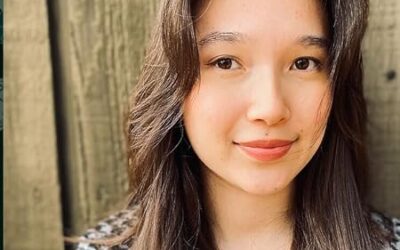
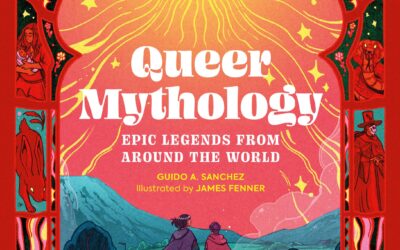
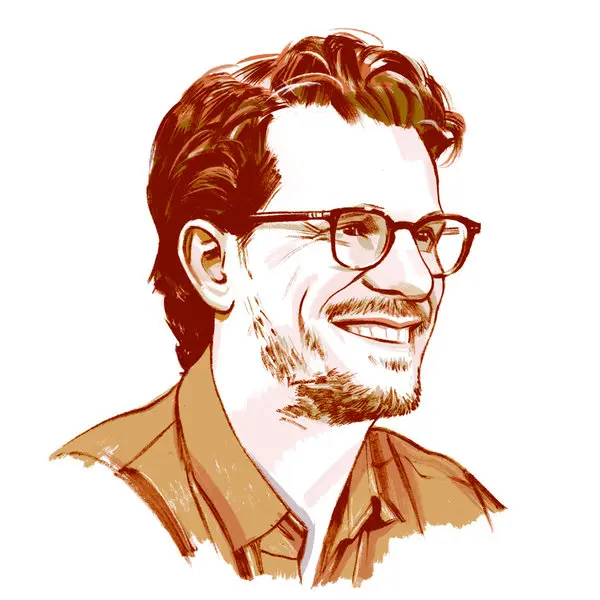
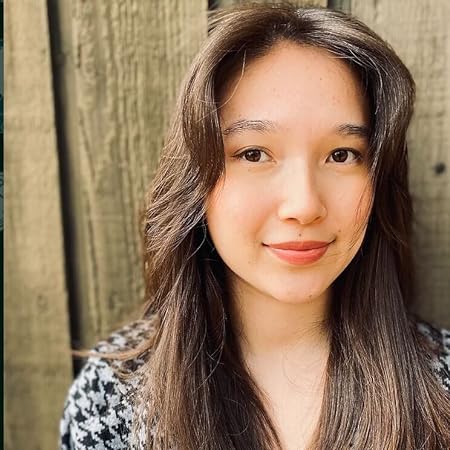
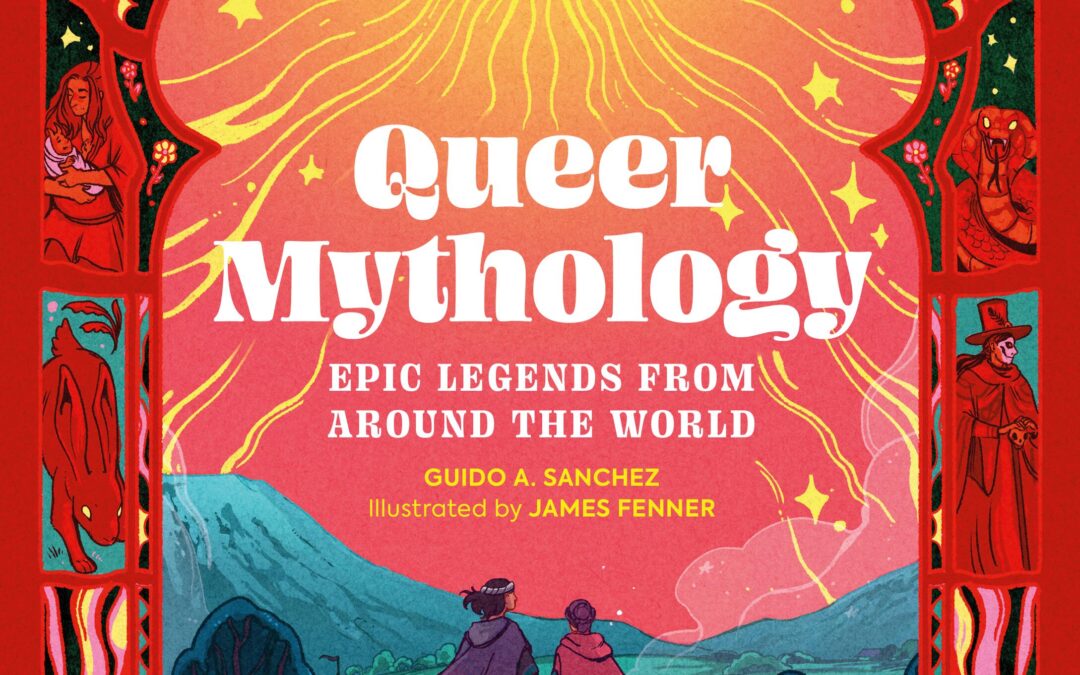
0 Comments